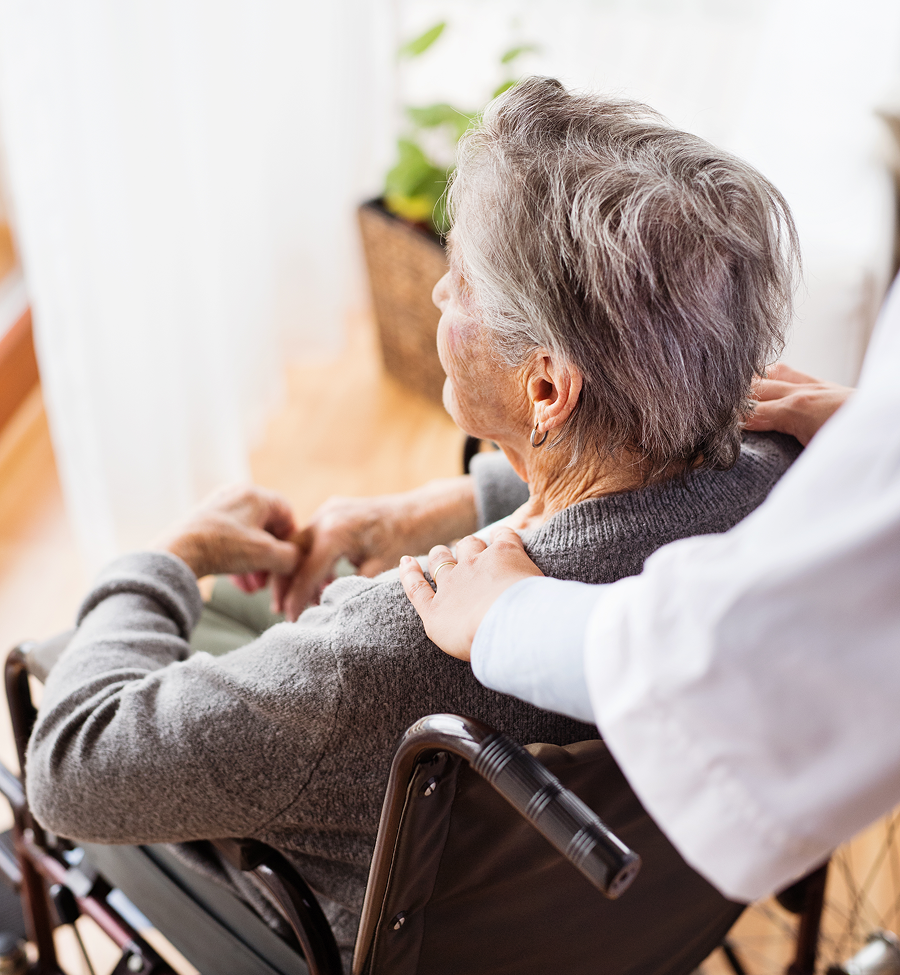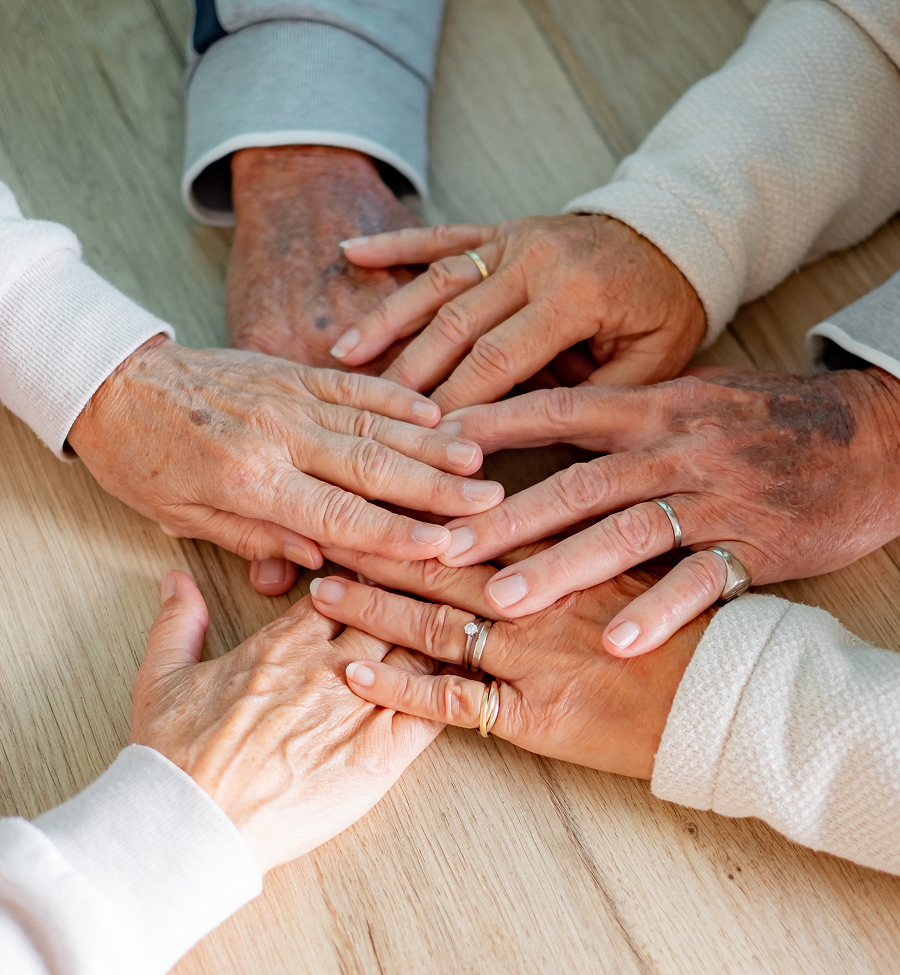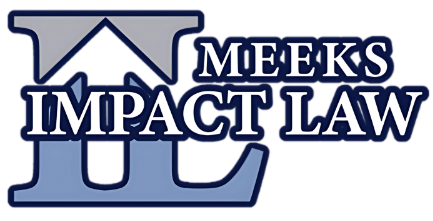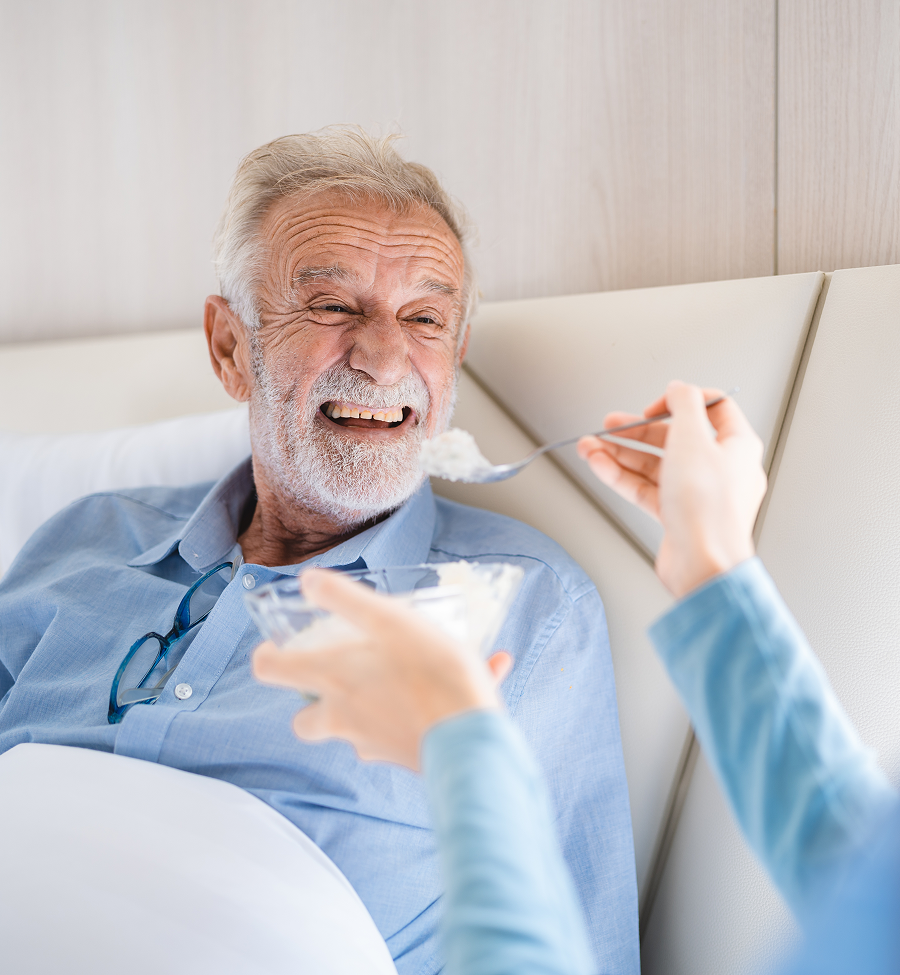Protecting the Elderly From Neglect and Mistreatment
Elderly individuals in nursing homes deserve respect, care, and dignity. Unfortunately, nursing home abuse and neglect occur far too often. If you suspect a loved one is being mistreated, our firm will fight to protect their rights and hold negligent caregivers accountable.
Types of Nursing Home Abuse:
Physical abuse
Emotional or verbal abuse
Neglect (dehydration, malnutrition, bedsores)
Financial exploitation


How We Help
1
Investigate abuse and neglect claims
2
Work with medical experts to document injuries
3
File lawsuits against care facilities and staff responsible
Protecting Your Elderly Loved Ones
We trust nursing homes, assisted living facilities, and long-term care facilities to provide excellent care for our loved ones. Unfortunately, whether it’s due to understaffing, a lack of training, or a lack of background checks, nursing home abuse and neglect can happen. If your loved one has suffered abuse from nursing home staff members, you and your family deserve to seek justice and request compensation for their experience.
Meeks Impact Law understands how devastating it can be to watch your loved one suffer elder abuse. Our nursing home abuse lawyer is dedicated to pursuing nursing home abuse lawsuits to hold staff members accountable under federal and state law. Our team has years of experience advocating for nursing home residents, and we are committed to providing compassionate legal assistance to all of our clients.
If your family member has suffered nursing home abuse or neglect, don’t hesitate to reach out today. Contact our nursing home abuse lawyers by calling 678-341-5212 for a free case evaluation.
What Are the Main Types of Nursing Home Abuse or Neglect?
Nursing home abuse can happen in many different ways. It’s important to understand all of them as you help support your loved one through this difficult time.
Nursing home abuse may be any of the following:
Physical Abuse
Physical abuse includes hitting, pushing, or improper restraint techniques. Any direct physical harm toward nursing home residents is considered abuse.
Emotional Abuse
Emotional abuse may be harder to identify, but it still happens. This type of abuse includes verbal threats and isolation, which can cause psychological distress.
Financial Abuse
Nursing home abuse can also come in the form of financial exploitation. Nursing home staff may improperly use a resident’s personal assets or take money and valuables without their consent.
Sexual Abuse
Sexual abuse includes any unwanted sexual contact from staff members or other residents.
Neglect
Nursing homes and care facilities are required to provide basic care for all of their residents. When they fail to provide medical care, nutrition, hydration, and other basic needs, it is classified as nursing home neglect.
What Are Some Signs of Nursing Home Abuse or Neglect?
Spotting abuse and neglect is an important part of keeping your elderly loved ones safe. When you know the signs and symptoms to watch for, you can protect your family member and provide them with the support they need. Some types of abuse and neglect can be difficult to spot, which is why it’s essential to keep a close eye on your loved ones in nursing homes.
Sings of nursing home abuse and neglect can include:
- Physical marks: Bruises, cuts, or bed sores all indicate physical abuse or neglect
- Financial strain: Any changes in financial circumstances or unauthorized transactions can suggest financial abuse
- Behavioral changes: Many abuse victims suffer from behavioral changes like withdrawal, depression, and anxiety
- Poor hygiene: Unsanitary conditions can indicate that your loved one is not being cared for properly
Above all, it’s important to talk to your loved one regularly and ask them about their experience. Communication will help you spot the common warning signs and allow you to support them.
How Do You Know if You Have a Valid Case?
Many residents are worried about having a valid nursing home abuse lawsuit. In order to prove your case and recover compensation, you must show evidence of both negligence and causation.
Under the law, negligence is defined as the following:
- The liable party had a duty of care to the victim
- The liable party breached their duty of care
- The breach caused injuries to the victim
- The victim suffered damages because of their injuries
In a personal injury lawsuit, proving negligence isn’t enough. You must also prove that the negligence led to injuries and that those injuries led to economic or non-economic damages.
For instance, if your loved one was able to leave the nursing home facility on their own without supervision but was then found and taken inside later that same day, they may not have any physical injuries. In that case, it’s unlikely that you would have a valid case. On the other hand, if your loved one was allowed to leave the care facility on their own and then fell down and broke their wrist, you could argue that negligence caused their injuries. The best way to know whether or not you have a valid personal injury claim is to contact our legal team today.
What Kinds of Damages Can You Recover?
The goal of all personal injury claims is to recover compensation for your damages. In a nursing home abuse case, you will be seeking damages to pay for your loved one’s medical care plus any additional damages they incurred because of the abuse or neglect.
In most cases, damages are divided into the following categories:
Economic Damages
Economic damages are any damages you or your family members paid for as a direct cause of your loved one’s injuries. These damages are typically easy to prove and calculate with receipts and bills. Economic damages may include:
- Medical bills
- Lost wages from time off work (for family members)
- Property damage repair
- Financial losses as a result of financial abuse
Non-Economic Damages
Non-economic damages have to do with your loved one’s overall well-being and mental health as a result of the abuse or neglect. In many cases, abuse can lead to dramatic behavioral issues, including depression, anxiety, and PTSD. While these damages may be harder to calculate, they are important parts of your personal injury lawsuit. Non-economic damages could include:
- Emotional distress
- Pain and suffering
- Mental health problems
- Loss of enjoyment of life
- Permanent disability
Punitive Damages
Punitive damages are awarded when the defendant is found to have acted extremely negligently or without regard for human life. These types of damages aren’t awarded in every personal injury case; however, depending on the severity of the neglect or abuse, they may be relevant to you. Our personal injury lawyers can advise you on whether or not you are eligible for punitive damages.
What Kind of Evidence Do You Need?
In a nursing home abuse case, the more evidence you have, the better. Abuse and neglect are serious accusations, and a lawsuit has a much higher chance of being successful if you have multiple forms of evidence.
When our legal team takes action and begins pursuing your case, we’ll look for the following types of evidence:
Photos
In the case of physical abuse, photos of bruises, cuts, bedsores, and other injuries can be used. We can also use photos of unsanitary or uninhabitable living conditions.
Surveillance Footage
Many care facilities have cameras and video recordings. Any recordings that show evidence of abuse can be used in your case.
Incident Reports
Some nursing homes file reports when injuries, altercations, or complaints happen. Any records of these incidents or investigations can help your case.
Medical Records
Your loved one’s medical records can be used to prove their injuries or other health issues that have happened because of the abuse. They can also be used to prove a lack of proper medical care.
Witness Testimony
Your loved one’s testimony can be used if they are capable of telling a judge or jury what happened to them. Any family members who witnessed abuse or unsafe conditions can also give a statement. Staff members and other residents may also be called upon for their testimonies.
Expert Testimony
Medical experts or professionals with experience in a nursing home facility can talk about your loved one’s medical records and their care within the home.
The combination of all of these types of evidence will support your loved one’s claim and help them seek justice. Our team will assist you in gathering all of this evidence throughout your personal injury case.
What Does a Personal Injury Lawyer Do?
As your legal team, we will help you pursue a nursing home lawsuit until you get the outcome you deserve. We understand how challenging this can be for you and your family, and our goal is to handle your legal case while you focus on what matters most.
Our nursing home abuse lawyer will do the following:
- Investigate the circumstances of your case and identify all liable parties
- Gather evidence to support your claim
- Negotiate with liable parties to get the maximum settlement
- Take your case to court and file a lawsuit if necessary
Can Your Personal Injury Attorney Help Me?
If you or your loved one have suffered abuse or neglect in a nursing home, you deserve to seek justice. Nursing home residents deserve respect and care. When staff members or facilities don’t provide that, residents can suffer from severe issues.
Meeks Impact Law is here to give your loved one a voice and advocate for them in a court of law. Our legal team will fight for your rights until you get the maximum settlement for your injuries and suffering. To learn more about our services, please call our law firm today at 678-341-5212.

